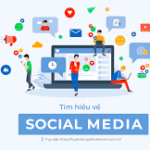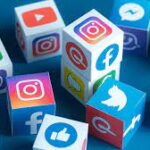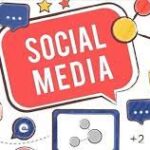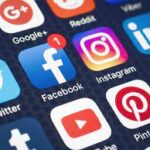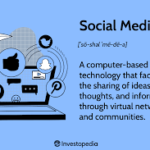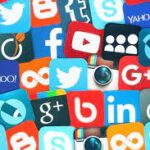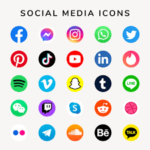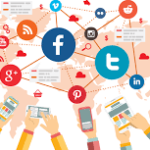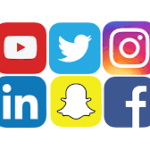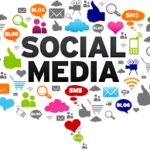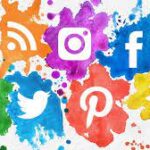In the digital era, social media has become an integral part of our daily lives, revolutionizing the way we communicate, share information, and connect with others. This article explores the strengths and weaknesses of social media as a powerful communication tool.

- Strengths of Social Media:
a. Global Connectivity: Social media platforms break down geographical barriers, enabling individuals from around the world to connect, interact, and share ideas effortlessly. This global reach facilitates cross-cultural understanding and fosters diverse perspectives.
b. Instant Information Sharing: Social media provides real-time access to news, events, and updates. Users can share and disseminate information instantly, allowing for rapid awareness and response to breaking news and emergencies.
c. Engagement and Interaction: Social media platforms offer opportunities for engagement, interaction, and community building. Users can communicate, share opinions, and collaborate on various topics, leading to enhanced connections and social bonds.
d. Promoting Creativity and Expression: Social media encourages users to express themselves creatively through visual content, writing, and multimedia. It provides a platform for artists, writers, and content creators to showcase their talents and gain recognition.
e. Business and Marketing Opportunities: Social media offers businesses cost-effective marketing strategies and direct access to a vast consumer base. Companies can engage with customers, build brand awareness, and target specific demographics, leading to increased sales and brand loyalty.
- Weaknesses of Social Media:
a. Spread of Misinformation: Social media platforms can be breeding grounds for the rapid spread of false information and fake news. Lack of fact-checking mechanisms and the ease of sharing unchecked content contribute to the proliferation of misinformation, leading to potential societal and political consequences.
b. Privacy and Security Concerns: Users’ personal information and data privacy are major concerns in the social media landscape. Breaches in security, data mining, and unauthorized access to personal information pose risks to user privacy and can lead to identity theft or exploitation.
c. Cyberbullying and Online Harassment: Social media platforms have witnessed an increase in cyberbullying, harassment, and hate speech. Anonymity and the ease of spreading harmful content can result in emotional distress, mental health issues, and social isolation among users.
d. Addiction and Time Management: Excessive usage of social media can lead to addiction and negatively impact users’ productivity, mental well-being, and real-life relationships. The constant need for validation and the fear of missing out (FOMO) can contribute to unhealthy behaviors and reduced face-to-face social interactions.
e. Filter Bubbles and Echo Chambers: Social media algorithms often personalize content based on user preferences, leading to the formation of filter bubbles and echo chambers. This can limit exposure to diverse opinions and perspectives, hindering critical thinking and fostering polarization.
While social media has numerous strengths, such as global connectivity, instant information sharing, and business opportunities, it is essential to recognize and address its weaknesses. Mitigating issues related to misinformation, privacy, cyberbullying, addiction, and echo chambers is crucial for harnessing the full potential of social media while ensuring a safe and constructive digital environment.


